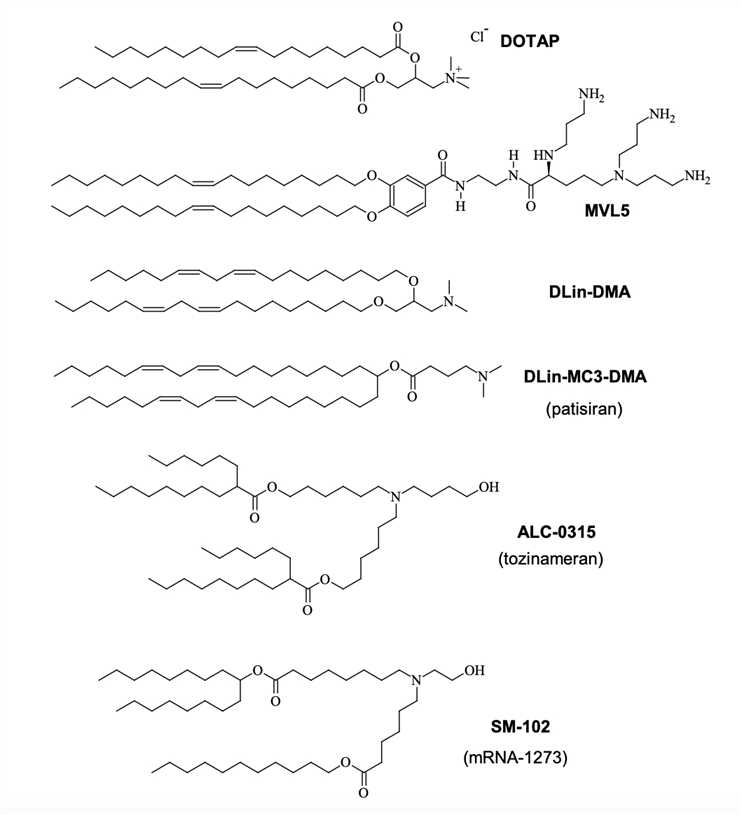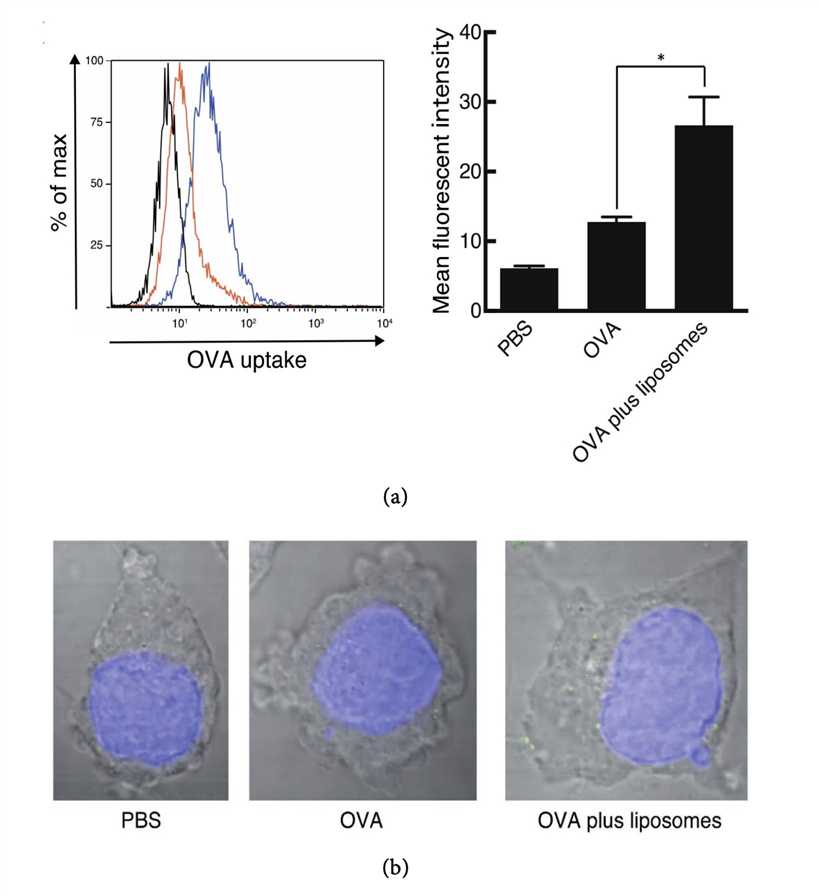Antibody-Cationic Liposome Production Service
Welcome Antibody-Cationic Liposome Production to Our Service: Inquiries and Orders Are Always Welcome! Creative Biolabs prides itself on offering only the highest-quality antibody-cationic liposome products that meet rigorous standards.
Services
Cationic liposomes are tiny vesicles composed of cationic (positively charged) lipids, widely used in drug delivery, gene transfer, and vaccine development. Their fundamental composition includes lipid molecules, phospholipids, and various additives, allowing them to form a bilayer structure in an aqueous phase. When selecting a specific type of cationic lipids, Creative Biolabs takes into account the requirements of the target application—such as the properties of the drug, therapeutic goals, and desired release mechanisms—along with the anticipated outcomes. These comprehensive solutions enable us to provide optimal antibody conjugation services for clients across various scenarios.
Nowadays, based on their composition and characteristics, cationic liposomes have been categorized into the following types:
- Synthetic Cationic Liposomes:
Characteristics: Composed of synthetic cationic lipids (such as fatty acid amides), they exhibit good stability and controllability. Their structure can be designed to adjust hydrophilicity and hydrophobicity, making them suitable for drug delivery.
Applications: Primarily used in drug delivery systems and gene transfection.
2. Natural Cationic Liposomes:
Characteristics: Made from naturally derived cationic lipids (like plant phospholipids or animal cell membrane extracts), these liposomes typically possess good biocompatibility and biodegradability, although their stability may be lower.
Applications: Commonly employed in vaccine development and biotherapeutics.
3. Multifunctional Cationic Liposomes:
Characteristics: Built upon cationic liposomes, these have specific targeting ligands, fluorescent markers, or other functional molecules introduced via surface modification, enabling multiple functionalities. This enhances targeting capabilities and biodistribution.
Applications: Widely utilized for targeted drug delivery, imaging, and diagnostics.
4. Stimuli-Responsive Cationic Liposomes:
Characteristics: These liposomes can alter their structure or release drugs in response to specific external stimuli (such as temperature, pH, or electric fields), offering advantages for precise drug release.
Applications: Applied in cancer treatment and localized drug delivery.
5. Self-Assembled Cationic Liposomes:
Characteristics: Formed based on molecular self-assembly principles, typically using surfactants or modified lipids. The formation of these liposomes relies mainly on intermolecular interactions, making the preparation process straightforward.
Applications: Used as drug and gene carriers.
 Fig.1 The Structures of The Cationic Lipids.1,3
Fig.1 The Structures of The Cationic Lipids.1,3
Procedures
At Creative Biolabs, the cationic liposome-antibody conjugation technology involves the binding of antibodies to cationic liposomes, and it is widely employed in drug delivery, targeted therapy, and bioanalysis. The basic procedure typically includes the following steps:
- Material Preparation
Selection of Cationic Liposomes: Choose appropriate lipids based on requirements, commonly phosphatidylcholine (PC) and others.
Antibody Selection: Select the antibody to be conjugated, ensuring it possesses specificity and efficacy.
- Cationic Liposome Preparation
Lipid Dissolution: Dissolve cationic lipids in an appropriate organic solvent (e.g., chloroform).
Film Formation: Remove the organic solvent using methods such as rotary evaporation to form a lipid film.
Resuspension: Resuspend the film using a buffer (e.g., PBS) to create cationic liposomes.
- Antibody Modification
Antibody Activation: Chemically activate the antibody using methods such as EDC/NHS for crosslinking.
Conjugation Reaction: Under suitable conditions, bind the activated antibody to the cationic liposomes to form antibody-conjugated liposomes.
- Purification
Removal of Free Antibodies: Utilize techniques such as dialysis, gel filtration, or ultracentrifugation to eliminate unbound free antibodies.
- Characterization
Particle Size and Dispersion Analysis: Utilize techniques such as DLS to assess the size and dispersion of liposomes.
Antibody Functionality Assessment: Evaluate the biological activity of the antibody using assays such as ELISA or WB.
 Fig.2 Effect of Cationic Liposomes on OVA Uptake by DC2.4 Cells.2,3
Fig.2 Effect of Cationic Liposomes on OVA Uptake by DC2.4 Cells.2,3
Advantages
- High Cellular Uptake Capacity: Cationic liposomes have a positive charge on their surface, enabling them to interact electrostatically with the negatively charged components of cell membranes, including phospholipids and carbohydrates. This enhances their ability to facilitate cellular uptake, making them more effective for gene delivery and drug administration.
- Enhanced Targeting Ability: Cationic liposomes can improve their targeting specificity by modifying their surface properties and attaching specific ligands.
- Improved Biocompatibility: By altering their composition and preparation processes, cationic liposomes can enhance their biocompatibility and reduce immune responses, making them more suitable for in vivo applications.
- Increased Drug Stability: Cationic liposomes can effectively encapsulate and protect drugs from degradation in external environments, thereby improving the stability and bioavailability of the medications.
- Ease of Preparation and Functionalization: The preparation of cationic liposomes is relatively straightforward, and they can be easily functionalized using various chemical techniques to meet different drug delivery requirements.
- Versatile Carriers: Cationic liposomes can serve not only as carriers for gene delivery but also as drug delivery systems capable of concurrently transporting multiple therapeutic agents, ultimately enhancing treatment efficacy.
Our antibody-cationic liposome service is an innovative approach that combines biotechnology and nanotechnology. Whether you're looking for bulk orders or a single antibody-cationic liposome product, Creative Biolabs caters to your needs with well-mature solutions. We encourage you to contact us for any inquiries or to make a purchase.
- Ewert, Kai K., et al. "Cationic liposomes as vectors for nucleic acid and hydrophobic drug therapeutics." Pharmaceutics 13.9 (2021): 1365.
- Takahashi, Saeko, et al. "Mechanisms of enhanced antigen delivery to murine dendritic cells by the cationic liposomes." Open Journal of Immunology 7.4 (2017): 85-101.
- Distributed under Open Access license CC BY 4.0, without modification.
For research use only. Not intended for any clinical use.
This site is protected by reCAPTCHA and the Google Privacy Policy and Terms of Service apply.

